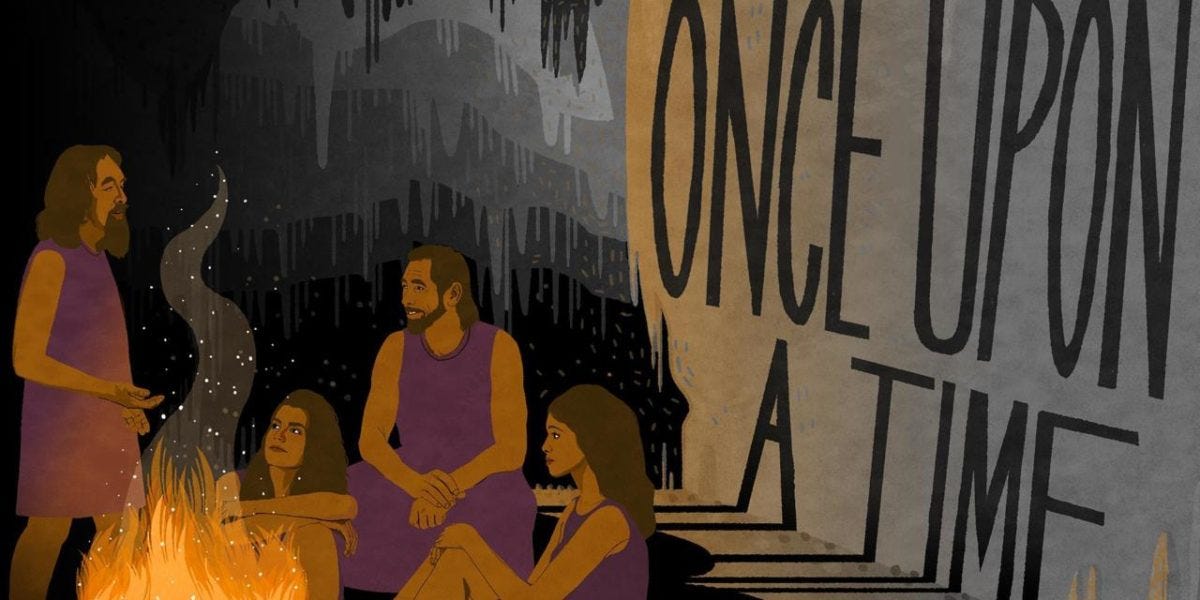The Authority of the Gospel Story

Stories are powerful. As we read, listen, or watch stories, we become involved. We come to know characters in ways that we know very few people in the world. We hear their inner thoughts and feel their struggles. They become our friends in a way. Their dilemmas become our dilemmas. Our views of justice, love, mercy, and many other things are challenged, not just at the intellectual level, but on an emotional level. The more involved we are in the stories, the more they have the power to shape our lives.
The gospel is a story; a true story, history, but a story nevertheless. God is the great Author crafting the storyline and moving the characters all in place to drive the story to a purposeful conclusion. The Gospels recount this story as it reaches its climax. They record the story of Jesus, the one they proclaim to be the Christ, the Messiah. We read and hear the stories of Jesus’ birth, a few vignettes from his early life, his choosing of the twelve, his frustrations with the twelve, his healings, his hiding, his teaching, his death, and his resurrection. They are all the story of the gospel.
That’s nice. We have a set of facts, an accurate recording of the life of the God-Man, Jesus. So what?
Yes, so what? What does a story of a man who lived nearly two thousand years ago mean for me and the world in which I live? What sort of authority does this story have over my life and the world? Even if the Gospels are an accurate recording of history, isn’t that a mere dusty record of ancient history?
No. Stories are powerful. Some stories shape the course of human history. The story of Remus and Romulus shaped not only the founding of Rome, but through Rome, shaped much of the way the world worked for quite some time. The American story of independence did the same. These stories tell us who we are and how our culture is shaped. They shape the culture. He who tells the stories shapes the culture. (This is why many in the media today fight for the power to tell—or re-tell—the story of America. They can control how we think and relate to one another.)
The world has a story. It begins, “In the beginning God created the heavens and the earth.” From that point we hear how creation came about, the fall of man, and the world’s re-creation that culminates in Christ Jesus and his church. This story is powerful, not in the same way that Harry Potter, Cinderella, or The Lord of the Rings is powerful. They are influential. God’s story is authoritative.
How can a story … how can the gospel story … be authoritative? Because God reveals who he is in the unfolding story of the world in his words and deeds. God makes himself known in what he creates (Psa 19; Rom 1.18ff.) and what he does (for example, delivering the children of Israel from Egypt; Psa 103.7; 106.20-21). God also reveals who he is through the Scriptures, his written word (cf. Psa 19.7ff.). The way God writes the story through his actions tells us who he is, what the world is, and who we are in the world. His story is the revelation of who he is, and we are created in his image, which means that our lives are to conform to his story.
If Jesus is who the Gospel writers proclaim him to be, the revelation of God himself (cf. John 1.14, 18), that means that everything Jesus did and said is authoritative for our lives. The pattern of his life tells us how we are to relate to God, one another, and the world around us. These are not dry dusty facts on a page. The stories of the Gospels are not husks from which we must extract the kernel of the truth of the gospel. Every healing, every dealing with the scribes and Pharisees, Jesus’ prayers, his frustrations with the disciples, in short, everything becomes authoritative for our lives. The Gospels provide the authoritative pattern for our lives.
For example, Jesus’ healings are more than a mere demonstration of his power, proof that he is God, or only pointing to the deeper “immaterial” needs that we have in our souls. All of those things may be true, but they are not the entire story. We don’t extract the gospel from these events. All of these events are the gospel: the announcement that the world’s King has come and has been victorious. Jesus’ healings, for instance, tell us that our bodies matter. Therefore, ministering to the whole person in proclamation and care for the body are gospel ministry. One is not a means to the other. The entirety of the care for the person is gospel ministry. God revealed himself in Christ caring for physical bodies. The church’s ministry is to be shaped by that ministry and, therefore, not only have preaching campaigns, but also build hospitals, have homeless shelters, and feed the hungry. This is our mission because the gospel story authoritatively tells us so.
We are shaped by stories. God calls us to be shaped by this story. We call this faith. Faith is submitting to the story of the gospel and having it shape everything about our lives; what we think, how we feel, how we relate, and how we shape our mission in the world.
This story is not for our entertainment or even to be influential. This story has authority over our lives.
The post The Authority of the Gospel Story appeared first on Kuyperian Commentary.

